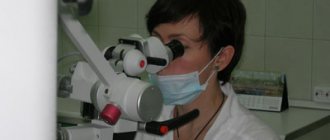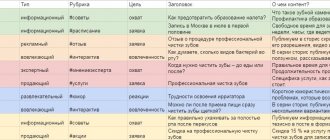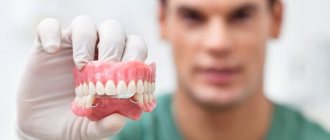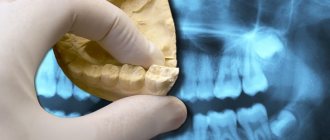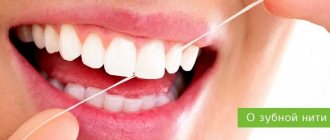The skill of a doctor is determined by his education, work experience in his specialty and how often he improves his qualifications and actively participates in scientific activities. To determine the level of qualifications of all medical specialists, the Ministry of Health of the Russian Federation introduced such a concept as “category”, which denotes the existing level of skill of a particular health worker. The qualifications of health workers, depending on their specialty, are assessed within three to six categories. In this article we will analyze in detail the categories of dentists, and also talk about the rules of certification. You will learn what a doctor must do to receive a new category, and how it affects the doctor's salary.
Dentist and dentist: what is the difference
Let's figure it out. What is the difference between a dentist and a dentist?
Dentist is a profession that requires secondary education. After graduating from medical school, the newly minted dentist specializes only in the treatment of hard dental tissues, namely dentin and enamel. Consequently, he will not be able to help a patient who comes with acute pain. His narrow specialization is based on the treatment of common caries.
A dentist is a medical specialist who has 6 years of university education and a year of internship behind him. He is endowed with a wide medical specialization and is able to perform various manipulations in the oral cavity: treatment and extraction of teeth, insertion of dental implants, bite straightening and much more.
The difference between a dentist and a dentist is obvious and quite significant. In this case, the question arises: why is a dentist needed if his powers are not as broad as those of a dentist?
In dental clinics there is no profession of “dentist” as such. There are quite a few highly specialized dentists of various specialties there. In addition, the dentist cannot be left as an on-duty specialist, since if necessary, he will not be able to provide the necessary assistance to the patient.
Having found out the difference between a dentist and a dentist, the advantage of the second specialist becomes obvious. That is why oral health should be entrusted to a doctor with a full university education.
Other types of specialists
Therapist
The therapist, in addition to the functions performed by the dentist, can:
- treat deep caries, pulpitis, periodontal disease and other complex diseases;
- identifies and treats diseases of the oral mucosa;
- places various types of fillings in case of significant tooth damage;
- carries out teeth whitening and ultrasonic cleaning using professional equipment;
- sanitizes the oral cavity;
- if one or more teeth are missing, refer for consultation to a specialist, namely an orthopedic dentist;
- If the dentist identifies problems associated with malocclusion, and also identifies teeth that cannot be treated, he will refer the patient to an orthodontist or surgeon.
Surgeon
This is a narrow specialist who is distinguished by the following types of work:
- removal of healthy teeth if they interfere with the growth of neighboring ones;
- removal of wisdom teeth that are in the way or growing incorrectly;
- removal of teeth after a referral from a therapist, which must indicate that they cannot be restored;
- will be able to perform dental implantation and prosthetics.
Orthopedist
If you are missing at least 1 tooth, then you know why you need a consultation and visit to an orthopedist. The orthopedist performs the following functions:
- performs full or partial dental prosthetics;
- selects the type of prosthetics, for example, crowns, bridges or implants;
- restores a beautiful smile.
It is worth remembering that an orthopedic dentist is visited only after sanitation of the oral cavity. First, an examination should be carried out by a dentist or dentist, and after that you can consult an orthopedist.
Orthodontist
This doctor is responsible for the correct bite. If a person has an incorrect bite, it is not only a cosmetic defect. This problem can lead to diseases of the gastrointestinal tract, gums, bone tissue of teeth, and also causes headaches.
What kind of work does an orthodontist do?
- straightens teeth, making your smile beautiful;
- removes gaps between teeth, as well as diastema, better known as a “gap” between the front teeth of the upper row;
- Ensures that milk and permanent units grow evenly. If teeth grow abnormally, the orthodontist corrects it;
- gives recommendations and advice related to bite;
- exercises control over the correct formation of the jaw in children.
Stages of an orthodontist’s work:
- when aligning or correcting the dentition, draws up a treatment plan. Then he makes impressions of the teeth. Next, all materials, along with x-rays, are sent to a dental laboratory for the production of the necessary structure;
- After receiving a design that corrects certain problems, the orthodontist installs it. And also gives recommendations on its care;
- throughout the entire treatment, which lasts while braces, retainers and other structures are installed, the orthodontist observes the patient;
- Patients with braces and other structures go to the orthodontist for a long time. After all, dental correction is a rather lengthy process.
Dentistry. Is it necessary?
The dentist deals exclusively with simple manipulations in the field of dental treatment. He does not have the right to provide more complex types of dental services.
Is this profession necessary then? The dentist performs the following list of works:
1. Examines the oral cavity and assesses the condition of the teeth.
2. Determines the cause of concern.
3. Treats gum diseases.
4. Engaged in filling small areas of damaged dental tissue.
5. Explains the rules of proper oral hygiene.
6. Consults on the choice of dental accessories, selects them based on the condition of the teeth.
7. If serious problems with the condition of the teeth are identified, refer the patient to an appointment with a competent specialist.
From the list of responsibilities, the need for the profession of a dentist is obvious, which makes it relevant.
However, this profession also has its downside: the lack of career prospects. Unfortunately, a dentist is not appointed to the position of head of the department.
Attestation report
The introduction includes information about the identity of the doctor and the medical institution where he holds a position. The characteristics of the department, its equipment and staff structure, and the performance indicators of the department in the form of statistical data are described.
The main part consists of the following points:
- characteristics of the population undergoing treatment in the department;
- possibility of carrying out diagnostic measures;
- carried out medical work with the indicated results for specialized diseases;
- deaths over the past 3 years and their analysis;
- implementation of innovations.
The conclusion of the report consists of summarizing the results, indicating possible problems and examples of their solutions, and opportunities for improvement. If published materials are available, a copy is attached. A list of literature used and studied over the past few years is indicated.
Categories of dentists
To improve his specialization, after a certain amount of time, the dentist must upgrade his category.
The category depends on the length of work in the specialty, starting from the moment it was received. They are changed after completing advanced training courses.
There are 3 categories of dentists:
1. Doctor of the second category - awarded to a doctor whose work experience is more than 3 years, after receiving certification. The specialist must be well-versed both theoretically and in terms of practice.
2. Doctor of the first category - work experience of at least 7 years. A specialist must increase knowledge in his field, as well as study related disciplines.
3. The highest category implies at least 10 years of work experience in the specialty. This category corresponds to advanced theoretical and practical training.
A doctor’s category affects not only his professionalism, but also his salary.
Documentation
Four months before recertification, the specialist must submit an application for confirmation or obtaining a higher qualification. Passport details, existing category and date of receipt, personal signature are indicated here.
A certification sheet and a report on the work done over the past few years, approved by the chief physician of the health care facility and the human resources department where the certified person works, are also filled out. Copies of documents on education, work history and assignment of current qualifications are also sent to the commission.
Children's doctor
A pediatric dentist treats simple dental problems that arise in children. As a rule, this is caries that develops in young patients due to a sweet tooth.
However, there are often cases when a pediatric dentist is not able to provide qualified assistance to a child, and he has to refuse to treat the patient. There are several reasons for this:
• Problems in the treatment of children's teeth due to the differences that a child's jaw has compared to an adult's.
• Dental treatment may require special equipment and a different approach that the dentist does not have.
• Lack of drugs suitable for children.
• Inability to find an approach to a small patient.
If the pediatric dentist is unable to provide the necessary care to the child, you must make an appointment with the pediatric dentist.
In most cases, a pediatric dentist is able to help a small patient, since the oral cavity of children is more often susceptible to ordinary caries, which requires simple treatment. Also, do not forget to take your child for a preventive examination twice a year.
Dentist
A dentist has a wider range of powers in the field of dental treatment than a dentist. During 6 years of university training, in addition to studying “dental” topics, dentists master a number of other important disciplines that improve the training of a future specialist.
Upon completion of training, doctors are invited to choose one of several specializations in dentistry:
• Dentist-therapist.
• Periodontist.
• Orthodontist.
• Dental surgeon.
• Prosthetist.
• Pediatric dentist.
Order of the meeting
Certification is scheduled no later than three months from the date of receipt of data about the specialist by the committee. If the data does not match the requirements for the latter, the documentation will be refused (no later than 2 weeks from the date of receipt). The secretary of the committee agrees with the chairman of the expert group of the required specialization on the date of the examination.
Members of the expert group review the certification works of doctors for the category, completing a review for each of them, displaying the following data:
- level of practical skills of a specialist;
- participation in social projects related to the medical field;
- availability of published materials;
- self-education of the certified person;
- compliance of knowledge and skills with the declared category of doctors.
The examination must take place within two weeks from the date of receipt of the report. The result of the review is an indicator of the possible outcome of the certification. The secretary informs the specialist of the date of the meeting, which includes an interview and testing. More than 70% of correct answers allow you to consider the test passed. The interview takes place by questioning the person being certified according to theory and practice, the knowledge of which must correspond to the requested qualification.
The meeting is accompanied by the preparation of a protocol, which is signed by the members of the expert group and the chairman. The final decision is noted on the qualification sheet. A specialist receives the right to retake the exam only after a year. Within 7 days, the certified person receives a document confirming the promotion, reduction or refusal to assign a category.
Dentist-therapist
The activities of this specialist are the same as those of a dentist, but the dentist-therapist is vested with a wider range of powers:
• Treatment of more acute dental problems.
• Filling of teeth in case of severe destruction.
• Treatment of inflammatory diseases of the gums, oral mucosa, tongue.
• Teeth whitening.
• Ultrasonic cleaning.
• Conducting preventive examinations, followed by recommendations.
Dental surgeon
Dental surgeons are competent in the following matters:
• Removal of diseased teeth that cannot be restored.
• Removal of healthy teeth that are interfering with the growth of adjacent units.
• Implantation, prosthetics.
• Correction of the dentition.
• Carrying out a number of operations, for example, incision of the gums, resection of tooth roots.
The difference between a dentist and a dentist is worth knowing for those who have decided to devote themselves to this profession.
A dentist, endowed with a minimum set of medical powers, still remains a sought-after specialist. It is especially in demand in small provincial towns or villages, where, in the absence of dentists, the dentist copes with the treatment of various diseases.
Who are dentists?
In the field of dentistry, there is another concept - dentist. How is he different from a dentist and a dentist?
Essentially, a dentist is a dentist (corresponding to a medical assistant). This concept applies to dental professionals working abroad. It has not taken root in our country. And many people have heard the word “dentist” only in foreign films; in everyday life it is “unheard of.”
Since a dentist is the same as a dentist, dentists are therefore mid-level doctors, that is, without a full higher education and with a limited range of services provided.
So, having figured out who a dentist and a dentist are and realizing that these are specialists in the same medical specialization, but with different tasks, you can easily contact a dental clinic for help if the need arises.
It is worth considering that there is also a difference between a dentist and a dentist in the prices for services. Dentists' prices will be significantly higher than the price for dentists' work.
Now we know who a dentist is. We also looked at what it does and its relevance, so you can safely contact any clinic, having the right concepts about dentists and dentists.
Points for promotion
Each specialist receives points that are used in making decisions about qualifications. They are awarded for attending conferences, including international congresses, giving lectures to colleagues or nursing staff, distance learning with a final certificate, and taking courses.
Additional points are awarded for the following achievements:
- publishing of textbooks, manuals, monographs;
- publication of an article;
- obtaining a patent for an invention;
- presentation at symposiums with a report;
- speaking in institutions and the media;
- obtaining a title;
- defense of the thesis;
- awards by public authorities.




